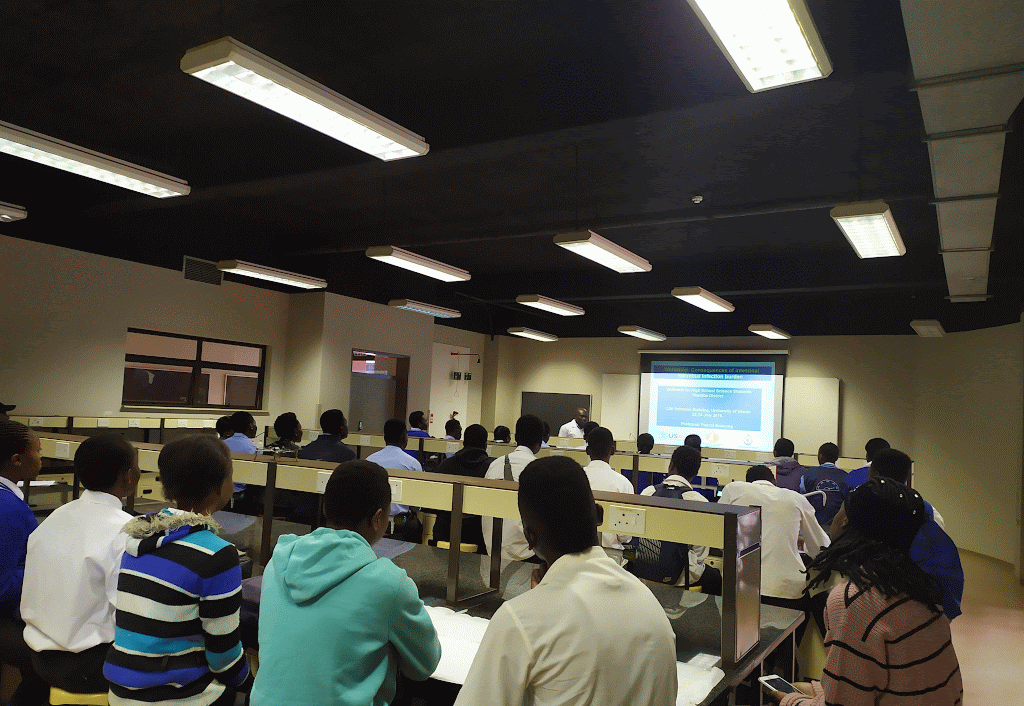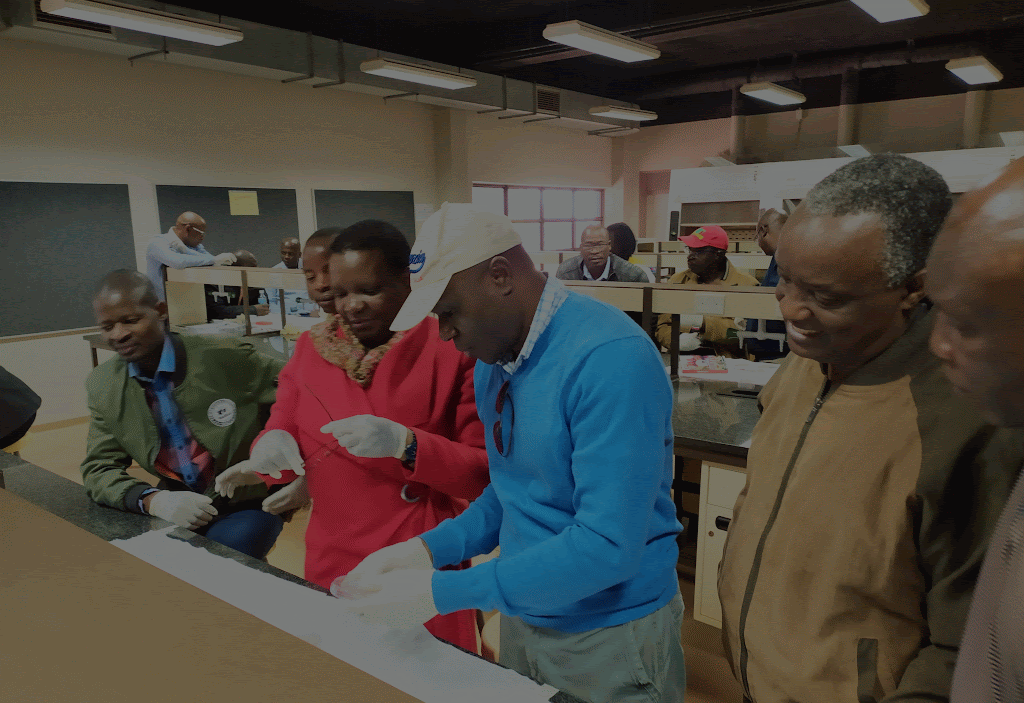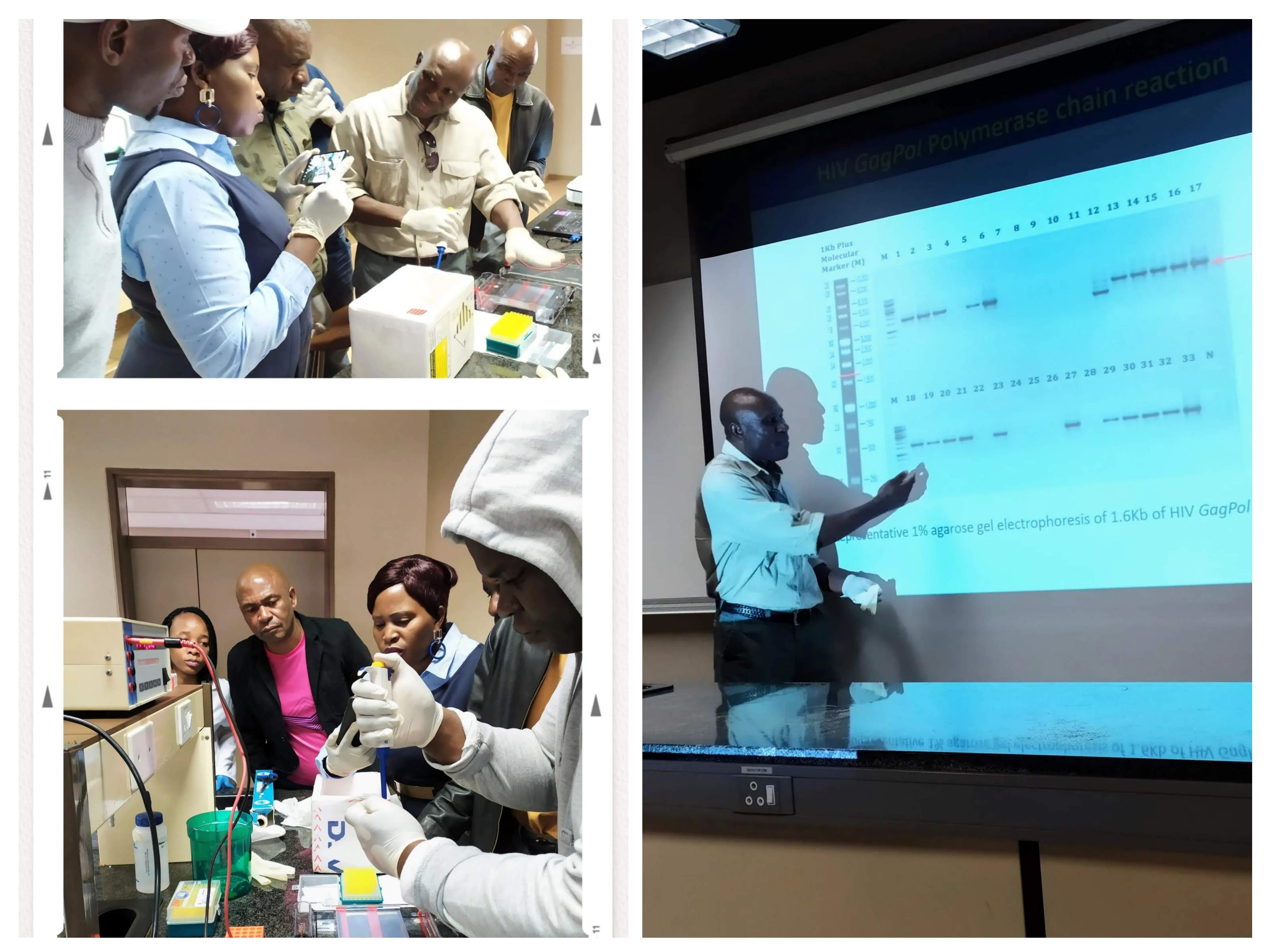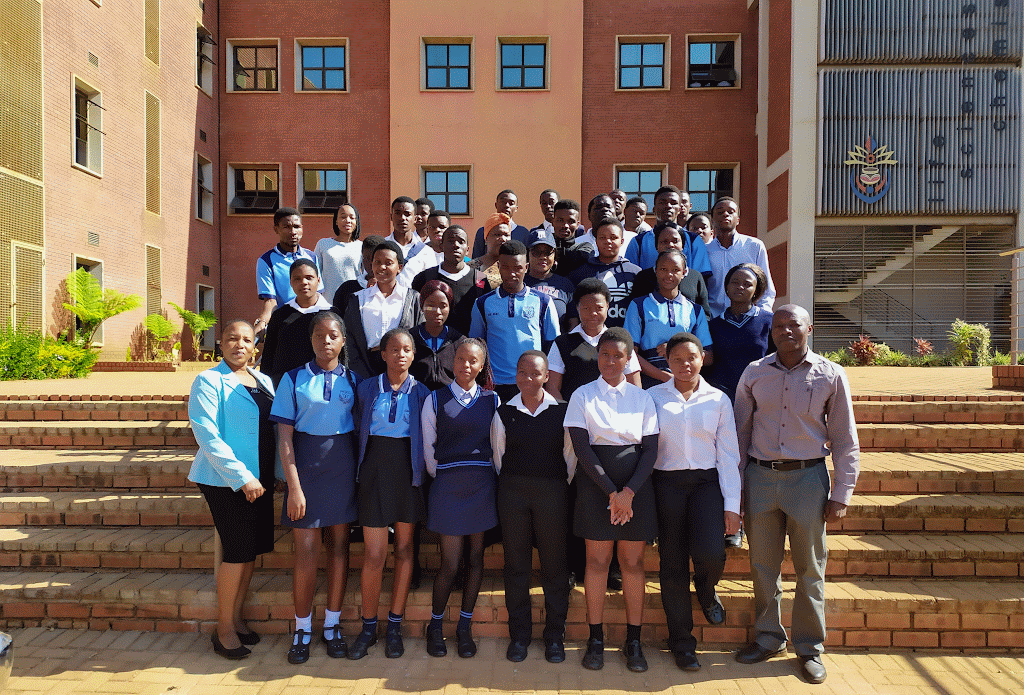Exploring Transmission of Intestinal Infections and Molecular Biology Techniques with High School Students and Teachers
This successful educational event, attended by 30 high school teachers and 60 high school students, was organized and held at HIVAIDS & GLOBAL HEALTH RESEARCH PROGRAMME (HAGH) - University of Venda. It aimed to inspire and deepen the participants’ understanding of the intestinal infections and their consequences on health, while also providing practical hands-on experience in molecular biology techniques. Through a series of informative talks, interactive practical sessions, and laboratory tours, participants gained valuable knowledge about the subject matter and were exposed to the latest laboratory equipment used in molecular biology research. This comprehensive overview of the workshop highlights the workshop’s objectives, activities, and outcomes, showcasing the significance of such events in fostering scientific literacy and inspiring young minds.
Background
Intestinal infections poses a significant threat to public health worldwide. Understanding the underlying causes, consequences, and prevention methods for these infections is crucial for creating awareness and implementing effective preventive measures. In this context, this workshop was organized to educate high school students and teachers about intestinal infections and introduce them to the practical aspects of molecular biology techniques used to study the microbes responsible for these infections. The workshop facilitators hoped that by the end of the workshop, students and teachers will leave the workshop with a newfound appreciation for microbiology and inspire students to consider a career in the field.
Workshop objectives
The workshop aimed to achieve the following objectives:
Enhance participants’ understanding of the consequences of intestinal infections and sanitize portable water.
Provide hands-on experience in basic molecular biology techniques, including the growth of E. coli, PCR, and gel electrophoresis.
Familiarize participants with the laboratory environment and equipment used in a molecular biology lab.
Foster scientific literacy and inspire students to pursue careers in scientific research.
Workshop activities
Talks on intestinal infections and consequences
The workshop commenced with a series of informative talks delivered by renowned experts with over 15 years of experience in the field, Professor Pascal Bessong. These talks covered various topics, including the types of intestinal infections, modes of transmission, symptoms, preventive measures that can be applied in particular to portable water, and long-term health consequences. A good example of consequences for intestinal infection was explained by Professor Bessong on how diarrhoeal episodes caused by bacterial pathogens retarded growth in children under 2 years old. The sessions were designed to provide a comprehensive understanding, ensuring that participants gained a solid foundation before engaging in the practical sessions.
Hands-on practical sessions
Following the talks, workshop participants were divided into small groups to participate in hands-on practical sessions. The first practical session involved the growth of bacteria in non-selective and selective media. Students and teachers were provided with the necessary tools, including agar plates with prepared media for culturing bacteria present within water samples. The samples were derived from drinking water sources present within the communitities that the teachers and students lived. The inoculated plates were incubated overnight to observe the growth of bacterial colonies and understand the conditions that promote bacterial growth.
The second practical session focused on polymerase chain reaction (PCR). Participants were introduced to the principles and applications of PCR, including the amplification of specific DNA segments. Under the guidance of workshop co-facilitators, workshop participants were taught how to handle pipettes, measure accurate reagent volumes and prepare PCR reaction thereby, gaining insights into the molecular techniques used to detect and identify pathogens.
The final practical session centered on gel electrophoresis, a widely used technique in molecular biology. Workshop participants learned the principles behind gel electrophoresis, its role in separating DNA fragments, and the interpretation of resulting patterns. Each participant was given the opportunity to load DNA samples onto agarose gels, run the electrophoresis, and visualize the DNA bands under UV light.
Laboratory tours
To further enrich participants’ learning experience, laboratory tours were organized. The workshop participants were given guided tours of a fully equipped molecular biology lab, allowing them to observe and interact with advanced laboratory equipment such as thermal cyclers, gel documentation system, electrophoresis apparatus and sequencing platform. The tours aimed to familiarize participants with the cutting-edge technologies used in molecular biology research and inspire students to explore a scientific career.
Outcomes and impact
The workshop generated several positive outcomes and had a profound impact on the participants. Firstly, the informative talks expanded participants’ knowledge about intestinal infections, their transmission, and associated health consequences. Students and teachers gained insights into the importance of hygiene practices, sanitation, and personal responsibility in preventing the spread of infections.
Secondly, the hands-on practical sessions provided participants with invaluable experience in molecular biology techniques. Through the practical experience in culturing bacteria, PCR experiments, and gel electrophoresis, students and teachers acquired practical skills that can be applied in scientific research and diagnostic applications. These experiences fostered curiosity, critical thinking, and problem-solving abilities among the participants.
Moreover, the laboratory tours exposed participants to cutting-edge laboratory equipment used in molecular biology research. The hands-on demonstrations of thermal cyclers, gel documentation systems, and electrophoresis apparatus not only familiarized participants with the equipment but also sparked their interest in pursuing careers in molecular biology and related fields.
Conclusion
The workshop provided an enriching learning experience for high school students and teachers. By combining informative talks, practical sessions, and laboratory tours, the workshop successfully achieved its objectives of enhancing participants’ understanding of intestinal infections, providing hands-on experience in molecular biology techniques, and familiarizing them to the environment of an active molecular biology laboratory. Such events play a crucial role not only in improving scientific literacy and preventative health within local communities but it also plays an important role in nurturing scientific curiosity, inspiring young minds, and promoting scientific literacy among the next generation of researchers and professionals.




